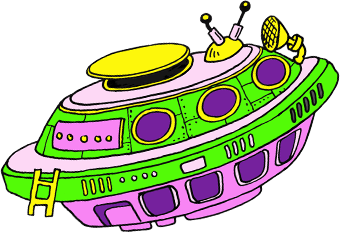Myocardial tissue and metabolism characterization in men with alcohol consumption by cardiovascular magnetic resonance and 11C-acetate PET CT Journal of Cardiovascular Magnetic Resonance Full Text
Content
A 12-month observational study of 20 patients with AC noted smaller cavity diameters, better clinical evaluation findings, and fewer hospitalizations in the 10 patients who abstained from alcohol use. In general, you should talk to your healthcare provider if you notice changes in your symptoms over time, especially if they are starting to affect your normal life and routine. However, you should talk to your healthcare provider about symptoms that mean you should call their office because each case is different. The only way to completely prevent alcohol-induced cardiomyopathy is not to drink alcohol at all. The muscles that control the lower chambers of your heart, the left and right ventricle, are especially prone to this kind of stretching.
Alcohol-induced cardiomyopathy is a condition where consuming too much alcohol damages your heart. That weakens your heart muscle, keeping it from pumping as well as it should. Over time, this means your heart can’t pump blood as effectively, which reduces your body’s available oxygen supply. Acute can be defined as large volume acute consumption of alcohol promotes myocardial inflammation leading to increased troponin concentration in serum, tachyarrhythmias including atrial fibrillation and rarely ventricular fibrillation.
Enhancing Healthcare Team Outcomes
Histologically, light microscopy reveals interstitial fibrosis (a finding that has been shown to be prevented by zinc supplementation in the mouse model), myocyte necrosis with hypertrophy of other myocytes, and evidence of inflammation. Electron microscopy reveals mitochondrial enlargement and disorganization, dilatation of the sarcoplasmic reticulum, fat and glycogen deposition, and dilatation of the intercalating discs. A 1- and 4-year follow-up study of 55 men with alcoholism showed that abstinence and controlled drinking of up to 60 g/day (4 drinks) resulted in comparable improvement in left ventricular (LV) ejection fraction. Ten patients who continued to drink higher amounts of alcohol all died during the follow-up period. https://ecosoberhouse.com/article/mental-disorders-alcohol-use/ (ACM) is a disease in which the long-term consumption of alcohol leads to heart failure.[1] ACM is a type of dilated cardiomyopathy.

Of these patients, 42 men and only 1 woman showed overt alcoholic cardiomyopathy and heart failure. These authors concluded that dilated cardiomyopathy was more frequently observed in alcoholic men than in women. A study in a rat model using an alcohol dehydrogenase transgene that results in elevated levels of acetaldehyde demonstrated a change in calcium metabolism at the intracellular level and a decrease in peak shortening and shortening velocity. This was interpreted by the authors as suggesting that acetaldehyde plays a key role in the cardiac dysfunction seen after alcohol intake.
Medical Professionals
You should also follow your doctor’s guidance and advice on any treatments you receive. This includes taking your medication as instructed and eating a healthy diet. If you have any questions about how to do either of these, your healthcare provider can answer them and offer you help and resources along the way. However, even reducing your drinking to light or moderate levels is better than continuing to drink heavily.
Is cardiomyopathy from alcohol reversible?
Alcoholic cardiomyopathy can reverse after stopping drinking. Anecdotal clinical evidence and smaller cohort series showing improvement in left ventricular ejection fraction with abstinence.
Mitochondria play an essential role in cellular metabolism, and disruption of their function can have profound effects on the entire cell. The myocyte mitochondria in the hearts of persons exposed to alcohol are clearly abnormal in structure, and many believe that this may be an important factor in the development of AC. Some studies have suggested that a genetic vulnerability exists to the myocardial effects of alcohol consumption. Individuals with certain mitochondrial deoxyribonucleic acid (DNA) mutations and angiotensin-converting enzyme (ACE) genotypes (DD genotype) may be particularly susceptible to the damaging effects of alcohol. Exactly how these genetic variables create this higher risk is not known.
Health
The significance of this is unknown, but it may be that some cases are genetic in origin or a combination of diet and genetic tendencies. Some people should avoid even that much and not drink at all if they have certain heart rhythm abnormalities or have heart failure. To make a diagnosis, your doctor will perform a physical examination and ask you about your medical history. Importantly however, remember that much of this information can be derived or inferred from the results of noninvasive testing. Electrocardiographic findings are frequently abnormal, and these findings may be the only indication of heart disease in asymptomatic patients.
The FDA is incredibly grateful to those pet owners who have agreed to be interviewed and given permission for their veterinarians to share medical records and diagnostic samples, including blood, serum and tissue. The agency is especially appreciative when pet owners make the difficult decision to provide tissues for analysis when a beloved pet passes away. The FDA believes that the information gained will help the FDA to understand the specific changes that are happening in the cardiovascular system and how they may relate to diet. When examining the most commonly reported pet food brands named in DCM reports submitted to the FDA, it is important to note that the graph below is based on reports that included brand information and that some reports named multiple brands. For a granular, case-by-case breakdown of DCM reports submitted to the FDA, see Canine Dilated Cardiomyopathy Complaints Submitted to FDA-CVM Through April 30, 2019. FDA urges pet owners to work with their veterinarians, who may consult a board-certified veterinary nutritionist, to obtain the most appropriate dietary advice for their pet’s specific needs prior to making diet changes.
Nutrition and Congestive Heart Failure
All clinical evidence indicates that the disease is completely reversible if recognized and treated early and if alcohol intake is completely eliminated. After chronic congestive heart failure has intervened, therapy is disappointing. In fact, conventional medical therapy has been so inadequate that we have instituted a program of total bed rest for periods of six months to more than a year for patients with alcoholic as well as other types of cardiomyopathy. The results of this program have been encouraging since heart size returned to normal in 50 per cent of patients. In the healthy controls and subjects with moderate alcohol consumption, our data showed that there was a significant correlation between ECV and K1.
What are 4 signs of alcoholic cardiomyopathy?
- shortness of breath.
- swelling of the legs, feet, and ankles.
- fatigue.
- weakness.
- dizziness or fainting.
- loss of appetite.
- trouble concentrating.
- a rapid and irregular pulse.
If a dog is showing possible signs of DCM or other heart conditions, including decreased energy, cough, difficulty breathing and episodes of collapse, you should contact your veterinarian as soon as possible. If the symptoms are severe and your veterinarian is not available, you may need to seek emergency veterinary care. Your veterinarian may ask you for a thorough dietary history, including all the foods (including treats) the dog has eaten. Between January 1, 2014 and April 30, 2019, the FDA received 524 reports of DCM (515 canine reports, 9 feline reports). Approximately 222 of these were reported between December 1, 2018 and April 30, 2019 (219 canine reports, 3 feline reports).
However, consistent heavy drinking strains those protective processes — especially in your liver — making them less effective. Ultimately, your body can’t keep up with the damage to multiple organ systems, including your heart. Incidence of alcoholic cardiomyopathy ranges from 1-2% of all heavy alcohol users.
As such, it is possible to assess changes in structure and metabolism of myocardial tissues in subjects with alcohol consumption by combining quantitative CMR with 11C-acetate PET/computed tomography (CT) imaging. Alcohol in excessive quantities has a directly toxic effect on heart muscle cells. Many of these case reports included breeds of dogs not previously known to have a genetic predisposition to the disease. The FDA’s Center for Veterinary Medicine (CVM) and the Veterinary Laboratory Investigation and Response Network (Vet-LIRN), a collaboration of government and veterinary diagnostic laboratories, continue to investigate this potential association. Based on the data collected and analyzed thus far, the agency believes that the potential association between diet and DCM in dogs is a complex scientific issue that may involve multiple factors.
When the rats were given an inhibitor of acetaldehyde dehydrogenase to increase levels of the ethanol metabolite acetaldehyde, an 80% decrease in protein synthesis occurred. Based on these data, acute ethanol-induced injury appears to be mediated by ethanol and acetaldehyde; the latter may play a more important role. What you should expect with this condition depends strongly on several factors.
- During this period, 10 women and 26 men fulfilled criteria for alcoholic cardiomyopathy.
- For example, it can have a pressor effect, cause hypertension, and increase left ventricular mass [34].
- Findings from gross examination include an enlarged heart with 4-chamber dilatation and overall increased cardiac mass.
- As such, it is possible to assess changes in structure and metabolism of myocardial tissues in subjects with alcohol consumption by combining quantitative CMR with 11C-acetate PET/computed tomography (CT) imaging.
- The Heart Failure Association (HFA) is a branch of the European Society of Cardiology (ESC).















